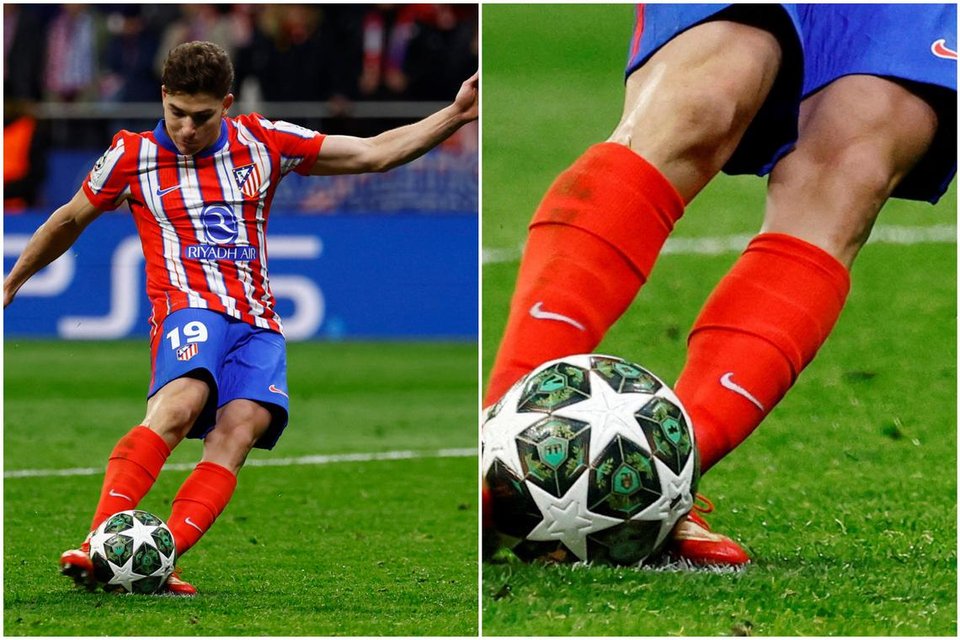
Football is evolving, and so are the rules that govern the beautiful game. One of the most recent changes addresses a very specific — yet not uncommon — situation: an involuntary double touch during a penalty kick. And at the heart of this change? A surprising incident involving Argentine striker Julián Álvarez.
📌 What happened with Julián Álvarez?
In a recent match, Julián Álvarez stepped up to take a penalty. As he struck the ball, it accidentally bounced off his other leg… and went straight into the net. A great goal? Not under the existing rule. The goal was disallowed because a penalty taker is not allowed to touch the ball twice before another player makes contact, even if it’s accidental. A harsh decision, especially since there was no intent to cheat or gain an unfair advantage.
This incident sparked debate: Should a player really be punished for something completely out of their control?
📖 What the old rule said
Up until now, Law 14 (governing penalty kicks) stated that any second touch by the taker before another player touches the ball is an infringement — even accidental ones. So if the ball ricocheted off the plant foot or support leg right after the kick, the goal was ruled out and an indirect free kick was awarded to the defending team.
The rule made sense on paper… but not always on the pitch.
✅ What’s changing now?
From now on, the rule is being updated:
If a goal is scored from an involuntary double touch on a penalty, the shot will no longer be automatically disallowed. The player will be allowed to retake the penalty.
In short, the player will not be punished with an indirect free kick, but will get another opportunity to take the penalty, as long as the referee judges the double touch to be unintentional.
🔍 Why is this change important?
- More fairness: Players won’t be punished for freak accidents beyond their control.
- Fewer controversies: Avoids frustrating decisions that can change the outcome of a match.
- Smoother gameplay: Penalties remain decisive moments without turning into traps for the taker.
🎓 Key takeaways
- Old rule: Any double touch by the penalty taker — even accidental — disallowed the goal.
- New rule (2025): If the double touch is involuntary, the penalty is retaken, not automatically canceled.
- The referee will make the call: It’s up to them to determine whether the contact was truly accidental.
🧠 A tip for all players…
Work on your footing and body control when taking penalties! While the new rule is more forgiving, avoiding a double touch is still the best-case scenario. It’s always better to score on the first try than to face the pressure of a second attempt…
👉 This rule change shows that modern football is listening to players and adapting to real-life situations on the pitch. Whether you’re a player, coach, or fan, staying informed is key — because every detail matters in the beautiful game!
- Tags:
- Football news
